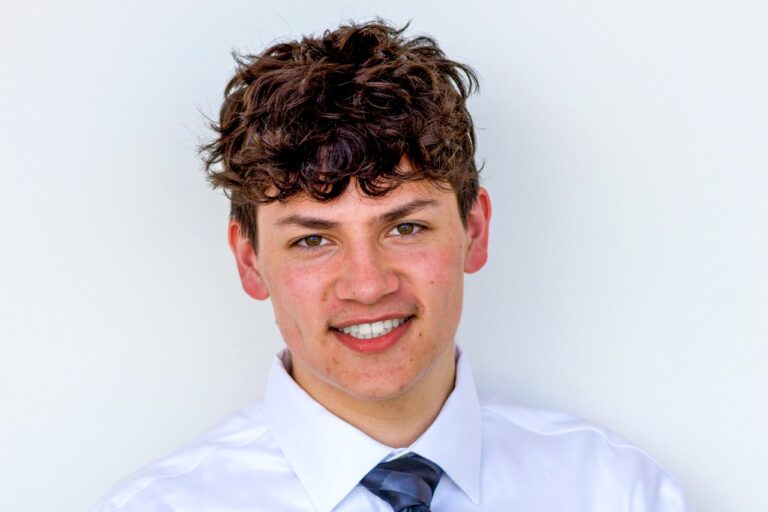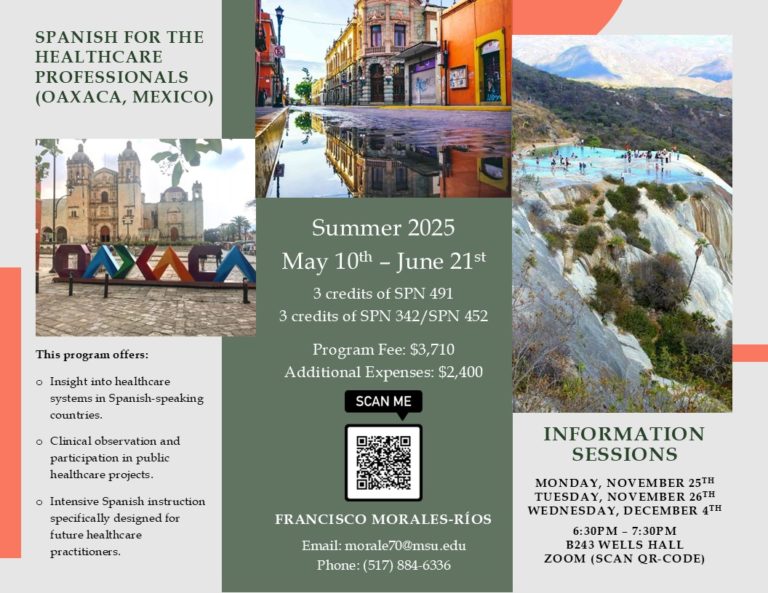For decades, Spanish, French, and German have dominated the landscape of foreign language instruction in most schools, colleges, and universities in the United States. However, as the need grows for proficiency in critical-need languages, Michigan State University is inviting teachers of two non-Western European languages to explore best practices through a synchronous online summer workshop.

The Department of Linguistics and Germanic, Slavic, Asian, and African Languages is recruiting 20 teachers from across the United States to a summer workshop supported by STARTALK, a program funded by the National Security Agency and administered by the University of Maryland. MSU’s STARTALK Critical Language Assessment Program (STARTALK CLAP) mirrors the mission of the national STARTALK program to support learning and professional development for teachers and students of languages deemed critical to national security including Arabic, Chinese, Hindi, Korean, Persian, Russian, Turkish, and Urdu.
MSU is a great fit for STARTALK. We have extensive expertise in critical-need languages such as Arabic and Russian, and our standards-driven teaching and assessment practices derive from research
Professor Paula Winke, STARTALK CLAP Director
Geared for teachers of Russian and Arabic, MSU’s first STARTALK CLAP workshop will run June 7-30, with optional follow-up sessions during the 2021-2022 academic school year. Funded by a $74,000 federal grant, the three-week summer workshop will strengthen participant knowledge of language assessment methods and provide opportunity to develop and publish assessment tools.

“MSU is a great fit for STARTALK,” said Paula Winke, Professor of Language and Linguistics and Director of MSU’s Second Language Studies Program, who will serve as STARTALK CLAP Director. “We have extensive expertise in critical-need languages such as Arabic and Russian, and our standards-driven teaching and assessment practices derive from research. We’re well-versed and have our feet firmly planted in methods that improve language teaching and acquisition.”
Two Second Language Studies doctoral students, who co-wrote the grant with Winke, will serve as the Lead Instructors. Dmitrii Pastushenkov, who previously taught through the STARTALK program while attending Kent State University, will serve as the Lead Instructor for Russian. He will be joined by Lead Arabic Instructor Elizabeth Huntley, who previously taught and directed STARTALK programs with Middlebury College, Concordia College, and Boston Public Schools.
We simply need more learners of critical languages and more people who can work in public, private, and government sectors where these languages are spoken.
Dmitrii Pastushenkov, Second Language Studies Ph.D. Student
Other faculty and graduate student scholars in Second Language Studies Program; Department of Linguistics and Germanic, Slavic, Asian, and African Languages; Department of Romance and Classical Studies; and the Center for Language Teaching Advancement will serve as guest speakers.
“This program is all about supply and demand,” Pastushenkov said. “We simply need more learners of critical languages and more people who can work in public, private, and government sectors where these languages are spoken.”
Winke concurred.
“We also need more people for diplomatic, educational, and cultural exchanges,” she said. “It’s important for us to be good communicators across our borders and around the world.”

Interactive Exchanges
The STARTALK CLAP workshop will engage participants in interactive learning and networking opportunities. Sessions will reinforce task-based language assessment, universal design for language assessment, vocabulary assessment, methods for self-assessment, and key concepts in assessment inclusivity, including attending to multilinguals and heritage language learners. In addition to MSU resources, the program will draw from guidelines and materials from respected language programs like the American Council on the Teaching of Foreign Languages.
“The workshop won’t be a one-way delivery of information,” Huntley said. “We’re committed to working with participants to deepen their skills and to help them develop their own assessment tools specific to their language programs goals and students.”

After completing the workshop, participants will have a clear understanding of best practices in foreign language assessment and be equipped to implement online assessment tools they developed. All participants, too, will be encouraged to share their new-found tools and materials through an open-source digital repository for language-related assessments and self-publications, that is, through the MSU-hosted Modern Language Association (MLA) Commons CORE Repository.
Winke, Pastushenkov, and Huntley agree on the importance of supporting teachers who provide instruction in critical-need languages. Programs like STARTALK, they said, can help fill that demand.
We’re committed to working with participants to deepen their skills and to help them develop their own assessment tools specific to their language programs goals and students.
Elizabeth Huntley, Second Language Studies Ph.D. Student
“Our hope is that this is the first in a series of workshops in critical-need languages,” Winke said. “Once we learn the ropes and host a successful workshop this summer, we’re on the way to offering more programs in the future.”
Registration is ongoing and open to teachers of Arabic and Russian who will be teaching in U.S. middle schools, high schools, community colleges, or universities during the 2021-22 academic year. United States citizenship is not required. All program participants receive a full scholarship that includes course materials and one graduate-course credit from MSU.
Interested in learning more about STARTALK CLAP? Visit the STARTALK CLAP web page.


